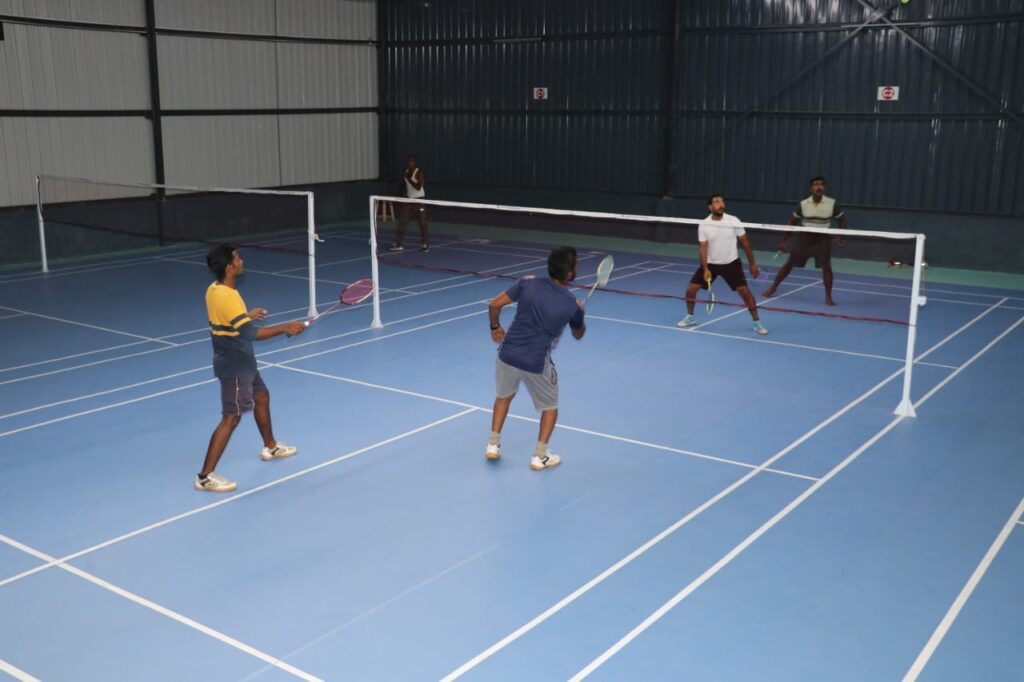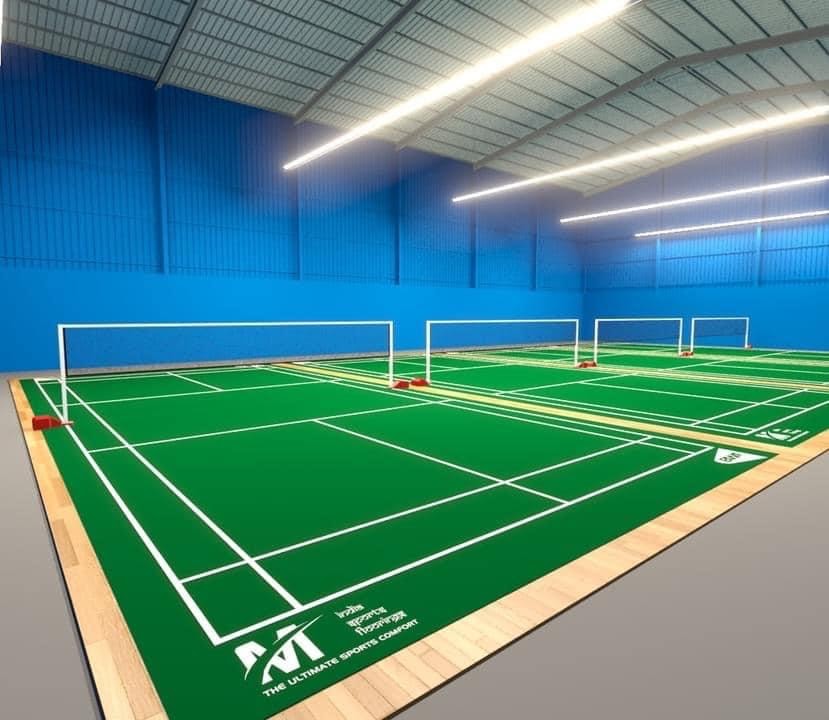
The Ultimate Guide to Choosing the Best Badminton Court Mat for Your Game
Outline
- The Ultimate Guide to Choosing the Best Badminton Court Mat for Your Game
- Introduction
- Why the Right Court Mat Matters
- Overview of Badminton Court Mats
- Types of Badminton Court Mats
- PVC Mats
- Rubber Mats
- Polypropylene Mats
- Key Factors to Consider
- Surface Texture
- Thickness and Cushioning
- Durability
- Maintenance and Cleaning
- Cost
- Performance Impact
- Traction
- Shock Absorption
- Playing Speed
- Installation Process
- Preparing the Surface
- Laying the Mat
- Securing the Edges
- Top Brands and Recommendations
- Yonex
- Li-Ning
- Victor
- Local Brands
- Indoor vs Outdoor Mats
- Differences in Material
- Weather Resistance
- Safety Considerations
- Slip Resistance
- Health and Environmental Factors
- User Reviews and Feedback
- Professional Players
- Recreational Players
- Frequently Asked Questions (FAQs)
- Conclusion
- Introduction
The Ultimate Guide to Choosing the Best Badminton Court Mat for Your Game
Introduction
Are you passionate about badminton and looking to up your game? One often overlooked but crucial aspect of playing badminton is the court mat. The right court mat can significantly impact your performance, safety, and overall enjoyment of the game.
Why the Right Court Mat Matters
Choosing the correct court mat isn’t just about aesthetics or brand preference; it’s about enhancing your performance and protecting your body from injury. The mat you play on can affect your grip, balance, and the stress on your joints.
Overview of Badminton Court Mats
Badminton court mats come in various materials and designs, each offering unique benefits. In this guide, we’ll delve into the different types of mats, key factors to consider, and tips to help you make an informed decision.
Types of Badminton Court Mats
PVC Mats
PVC (Polyvinyl Chloride) mats are popular due to their excellent durability and ease of maintenance. They provide a consistent playing surface and are resistant to wear and tear, making them a favorite in both professional and recreational settings.
Rubber Mats
Rubber mats offer superior shock absorption, which is essential for protecting your joints during intense games. They provide good traction and are often used in professional tournaments due to their high performance.
Polypropylene Mats
Polypropylene mats are known for their lightweight and easy installation. They are less expensive than PVC and rubber mats but still provide a decent playing surface, making them a great option for budget-conscious players.
Key Factors to Consider
Surface Texture
The texture of the mat surface affects traction and movement. Look for a mat with a texture that provides a good grip without being too abrasive.
Thickness and Cushioning
A thicker mat offers better cushioning, which can reduce the risk of injuries. However, it should not be too thick as it may affect playing speed and movement.
Durability
Investing in a durable mat will save you money in the long run. Consider mats made from high-quality materials that can withstand frequent use.
Maintenance and Cleaning
Choose a mat that is easy to clean and maintain. Mats that require special cleaning agents or frequent maintenance might not be ideal for everyone.
Cost
While cost is an important factor, it should not be the only consideration. Balance the cost with the quality and features of the mat to ensure you get the best value for your money.
Performance Impact
Traction
Good traction is crucial for quick movements and sudden stops. A mat with excellent traction will help you maintain balance and prevent slips.
Shock Absorption
Shock absorption is vital for protecting your joints from impact injuries. Mats with good shock absorption can help you play longer without discomfort.
Playing Speed
The type of mat can affect the speed of the game. Some mats may slow down the shuttle, while others may speed it up. Choose a mat that complements your playing style.
Installation Process
Preparing the Surface
Before laying the mat, ensure the surface is clean and smooth. Any debris or unevenness can affect the mat’s performance.
Laying the Mat
Carefully lay the mat on the prepared surface, ensuring there are no wrinkles or bubbles. This will provide a smooth playing area.
Securing the Edges
Secure the edges of the mat to prevent it from shifting during play. Use adhesive or tape designed for court mats.
Top Brands and Recommendations
Yonex
Yonex is a leading brand known for its high-quality badminton equipment, including court mats. Their mats are durable and provide excellent traction and cushioning.
Li-Ning
Li-Ning offers a range of court mats suitable for different levels of play. Their mats are known for their durability and performance.
Victor
Victor mats are designed to offer superior shock absorption and traction, making them a favorite among professional players.
Local Brands
Don’t overlook local brands, which can offer good quality mats at a lower cost. Always check reviews and feedback before purchasing.
Indoor vs Outdoor Mats
Differences in Material
Indoor mats are typically made from PVC or rubber, while outdoor mats are often made from polypropylene or other weather-resistant materials.
Weather Resistance
Outdoor mats need to withstand various weather conditions. Ensure the mat you choose is designed for outdoor use if you plan to set it up outside.
Safety Considerations
Slip Resistance
A good badminton mat should be slip-resistant to prevent accidents. Check for mats that offer a good grip even when wet.
Health and Environmental Factors
Consider mats made from non-toxic materials that are safe for both players and the environment. Avoid mats with harmful chemicals.
User Reviews and Feedback
Professional Players
Professional players often provide valuable insights into the performance of different mats. Look for reviews and recommendations from top players.
Recreational Players
Recreational players’ feedback can also be useful, especially if you are a casual player. They can offer practical advice on the mat’s durability and ease of maintenance.
Frequently Asked Questions (FAQs)
-
What is the best material for a badminton court mat?
- PVC and rubber are generally considered the best materials due to their durability and performance.
-
How do I maintain my badminton court mat?
- Regular cleaning with a mild detergent and water is usually sufficient. Avoid using harsh chemicals.
-
Can I use an indoor mat outdoors?
- It’s not recommended as indoor mats may not withstand outdoor weather conditions.
-
How thick should a badminton court mat be?
- A thickness of 4-8mm is generally recommended for optimal cushioning and performance.
-
Are expensive mats worth the investment?
- While more expensive mats often offer better quality and durability, it’s essential to balance cost with your specific needs and budget.
Conclusion
Choosing the right badminton court mat is essential for enhancing your game and ensuring safety. By considering factors such as material, thickness, durability, and cost, you can find the perfect mat for your needs. Whether you are a professional player or a recreational enthusiast, the right mat can make all the difference in your badminton experience.
India Sports Flooring (ISF)
Ph no : 18004190106
For more info:
Top Reasons Why Synthetic Mats Are Perfect for Badminton Courts in 2024
The Ultimate Guide to Badminton Court Layout and Dimensions in 2024
Unlocking Potential: The Complete Guide to Badminton Court Construction Costs in Sri Lanka
Badminton Court Construction Cost in Dubai, UAE
Score Big: The Ultimate Guide to Cost-Effective Sports Facility Maintenance
Serve it Right: A Guide to Optimal Badminton Court Selection
Unlocking Excellence: Expert Tips for Choosing the Best Badminton Court Flooring Mat in India

